Sinai crash: St.Petersburg’s bells toll for each of 224 victims as new intel says bomb to blame
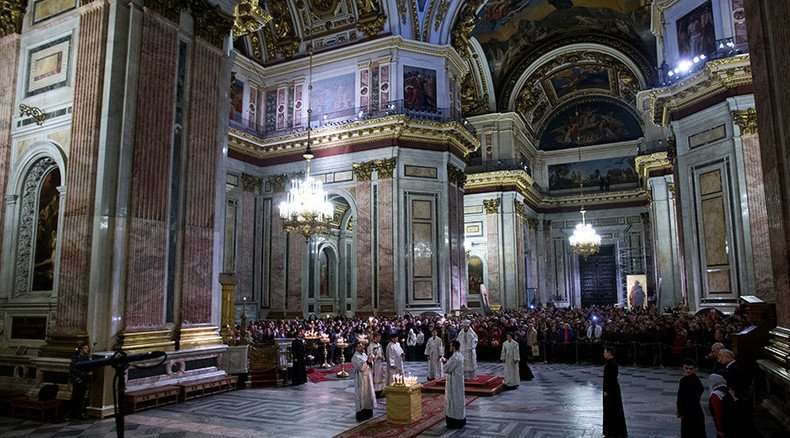
Thousands of people in St. Petersburg’s main cathedral commemorated the victims of the plane crash in the Sinai desert on October 31. Experts are homing in on the cause of the incident, while thousands remain stranded in Egypt as flights are suspended.
It took 37 minutes for the 10-ton bell of the city’s landmark St Isaac’s Cathedral to ring for each of the 224 victims, as their families stood gathered below. It sounded twice for a 13 year-old girl and her mother, who had worked at St Isaac’s.
Earlier in the service, an emergency worker who helped clear up the debris from the plane, which was scattered for miles across the scorching sand dunes, read a poem dedicated to 10 month-old Darina Gromova, a photo of whom waiting for her family’s plane to take her to Egypt has become a symbol of the crash.
#SinaiCrash: 10-month girl becomes grieving symbol of #7K9268 tragedy https://t.co/sall3e6qTnpic.twitter.com/4L3bbgHL5C
— RT (@RT_com) November 1, 2015On Sunday, the fourth Russian plane containing the remains and belongings of the passengers of the doomed flight landed in St. Petersburg. DNA has been taken from the victims’ families for tests to identify their deceased relatives. The bodies of fewer than 100 victims have been identified so far.
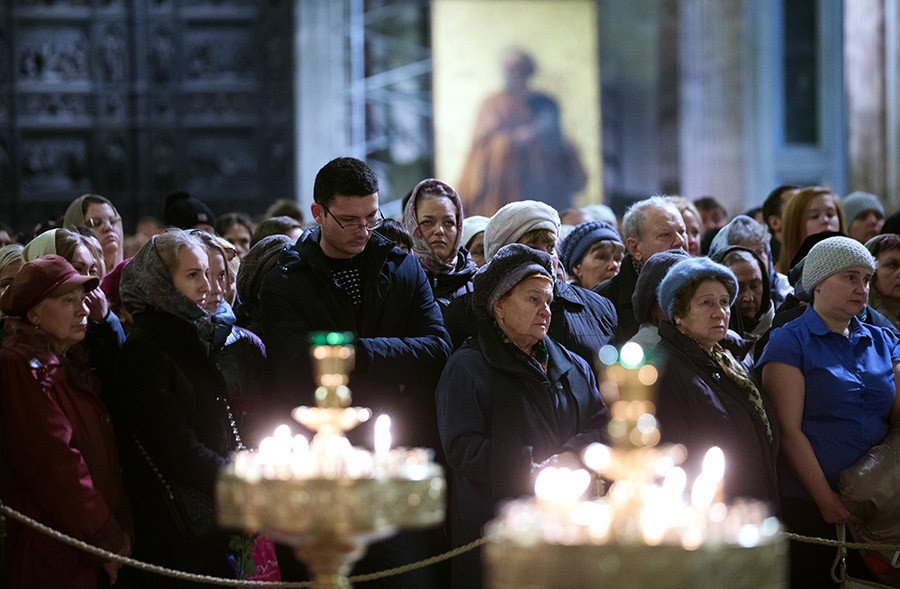
About 70 thousand Russian tourists remain stranded in Egypt, as Russia suspended all flights between the two countries on Friday. The move came following the emergence of evidence that the crash may have been caused by an act of terrorism, most probably an explosion in the luggage compartment. An edict confirming the suspension was signed by President Vladimir Putin on Sunday.
More than 11 thousand have already been brought back by specially-chartered flights that arrived empty at what is Russia’s second most-favored international holiday destination after Turkey. The passengers had to board with only hand luggage because of concerns about security at Egyptian airports. Soviet-made cargo planes provided by the air force have made two separate flights loaded with 30 tons of luggage to return the luggage to Moscow, from where it will be transported around the country.
On Sunday, UK airlines returned another 1,700 British tourists from the Egyptian resorts of Sharm el-Sheikh, the origin of Flight 9268, and Hurghada. Before that flight, some 3,300 UK citizens had already left Egypt following a similar air travel ban imposed by the UK government.
UPDATE: Estimated 80,000 Russians staying in Hurgada and Sharm el-Sheikh (LIVE UPDATES) https://t.co/QRjw5cEz5M
— RT (@RT_com) November 8, 2015France, Turkey, and several other states have also suspended commercial flights to the country.
The remaining stranded tourists have told the BBC that visible military presence has been upped in the vicinity of the resorts, with armed patrols outside hotels and transport checkpoints at the entries to settlements popular with foreigners.
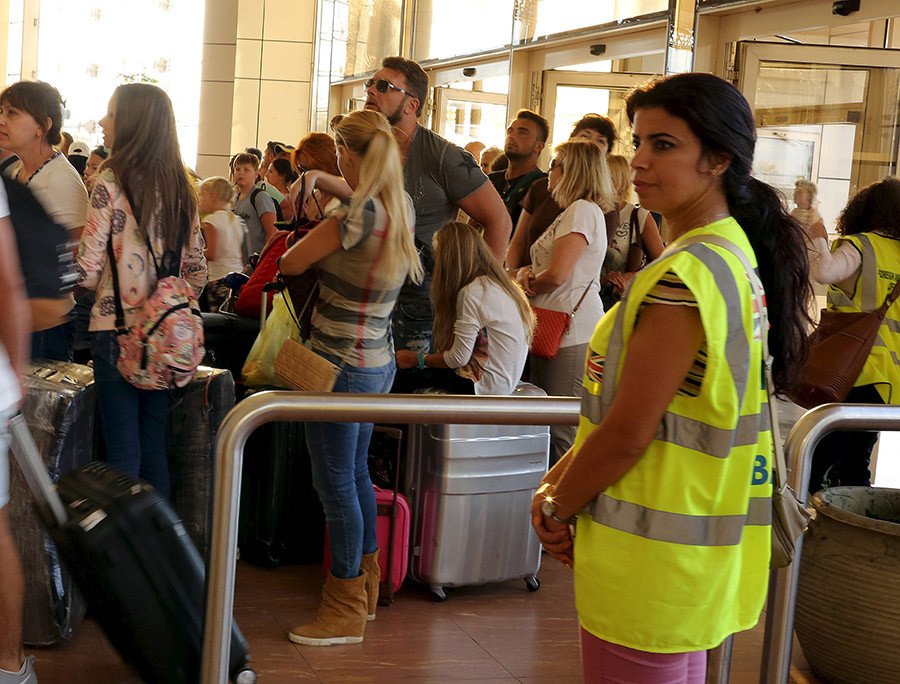
‘90 percent sure it was a bomb’
Consensus appears to be building in the media on the cause of the crash, though it still remains unclear who was responsible for it.
“The indications and analysis so far of the sound on the black box indicate it was a bomb. We are 90 percent sure it was a bomb,” a member of the Egyptian investigation team told Reuters.
Egypt has been publicly cautious about identifying the cause of the tragedy, amid fears that bad publicity could decimate its key tourism industry, which had been slowly recovering after years of political instability.
Russian emergency ministry officers lay flowers on #7K9268 crash site pic.twitter.com/BNQkZc54Ku
— Roman Kosarev (@Kosarev_RT) November 7, 2015On Saturday, Egypt’s lead investigator, Ayman Mokadem, said the plane had suffered an “in-flight break up” with no warning while being flown at cruising altitude on autopilot. The on-board recorders also captured a sudden noise prior to the disintegration. The finding is in line with reports earlier this week in Russian and French media that sounds “uncharacteristic of a standard flight” had been recorded by the black box.
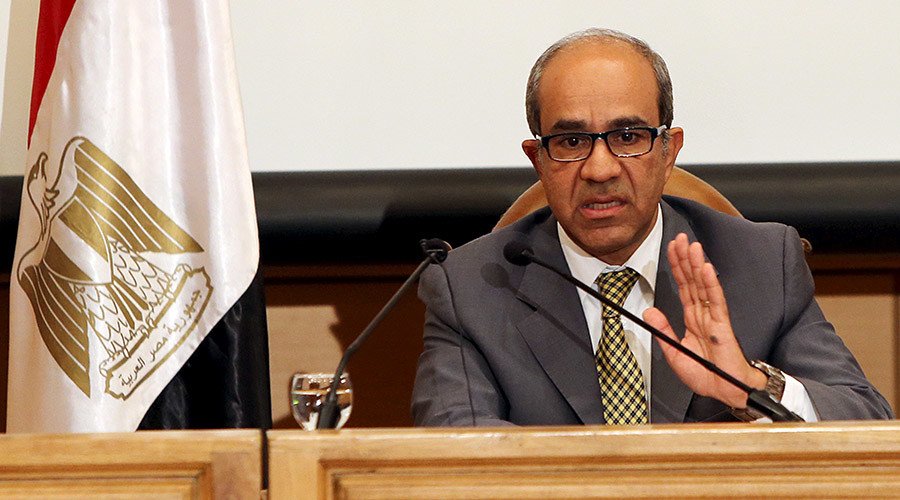
Mokadem warned against jumping to conclusions – saying that a fuel explosion, metal fatigue, or other technical failures are “still on the table” as possible causes and that investigators would need to perform a “spectrum analysis” of the sound that preceded the crash. Investigators are also studying CCTV tapes from Sharm el-Sheikh airport to see if there had been any “suspicious activity” by the officers on duty or if their ranks had been infiltrated.
The US and UK have been more unequivocal in placing blame for the explosion on terrorists, with one American official telling CNN that he was “99.9% certain” a bomb had caused the deaths.
LISTEN MORE:
Since the Arab Spring in 2011, which destabilized many North African regimes, Sinai has become a base for Muslim extremist groups, many of which have pledged allegiance to Al-Qaeda and Islamic State. One of those claimed responsibility for the crash in its immediate aftermath last week.
The Sunday Express reported that the UK’s intelligence agency, GCHQ, had intercepted chatter from jihadists in Sinai, who included English speakers with Birmingham and London accents, prior to the crash.
“There has also been some internet traffic suggesting that there was British involvement in the attack. This was a very sophisticated, carefully planned operation involving many moving parts,” an official told the newspaper.
“We know there are British jihadis in Egypt fighting with members of Islamic State. They were trained in Syria and are now hardened terrorists. Some of the Britons have an electronics background and have been developing some very sophisticated bombs.”
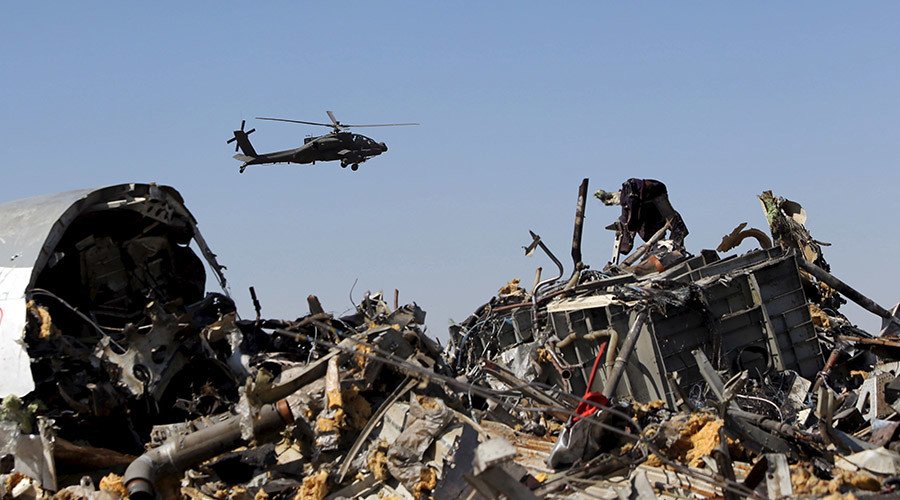
Egypt’s Mokadem complained that this intelligence has not being shared with investigators, but rather leaked to the media, and urged international agencies to offer direct co-operation.
Whatever the results of the investigation, the crash is likely to lead to a major overhaul of airport security, which, as UK Foreign Secretary Philip Hammond said, in the immediate term, “may mean additional costs, it may mean additional delays at airports as people check in.”












